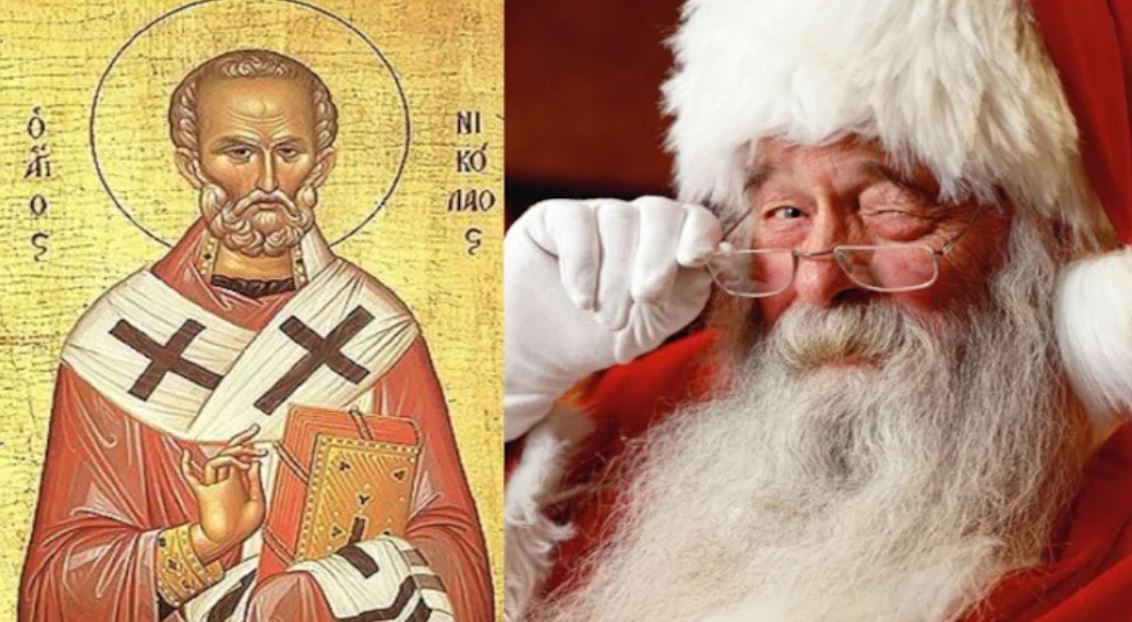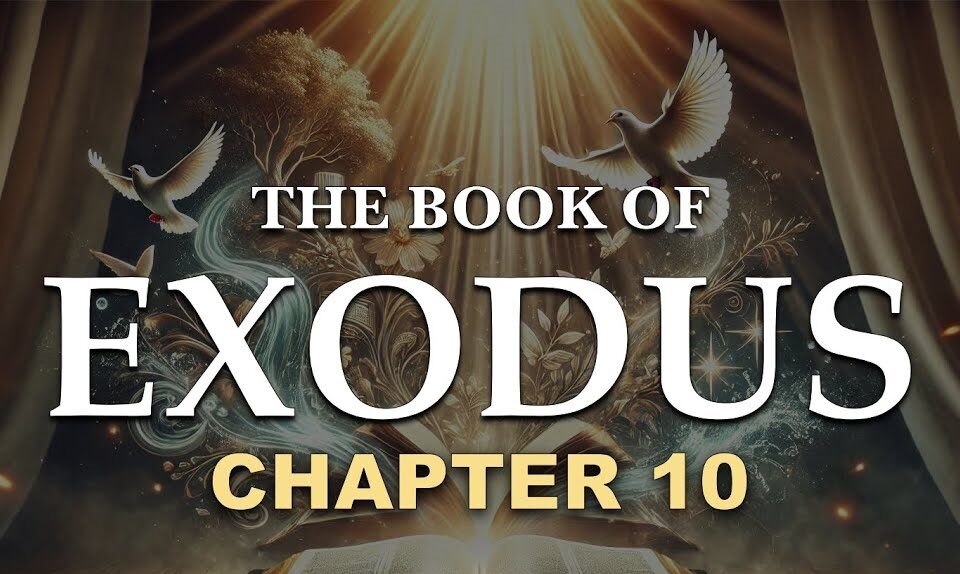Divine Retreat Centre UK – Official Website

Why should we pay for offering Holy Mass?
November 30, 2023
The Miraculous Power of Holy Water
November 30, 2023Santa Claus, also known as Father Christmas, is a well-known figure associated with Christmas, believed to come down the chimney and deliver presents to children all around the world in just one night. But where does this idea originate from?
The Story of St. Nicholas
The legendary Santa Claus is based on Saint Nicholas, a Catholic saint who lived in Asia Minor (now modern-day Turkey) during the early 4th century. His parents were wealthy, devout Christians who had been childless for many years, and Nicholas was the answer to their prayers. Unfortunately, they died during an epidemic when Nicholas was 9 years old, leaving him orphaned but with all their wealth. He was taken into the care of his uncle, the bishop of Myra, who saw a vision one day of Nicholas distributing gifts to the people of Myra. The bishop shared his vision with the people, and told them that his nephew would be a blessing for the city as well as the whole world. Nicholas was later ordained a priest, and became the Bishop of Myra when his uncle died.
Nicholas was a pious man who followed the teachings of Jesus, distributing his wealth to the poor. He didn’t want them to feel embarrassed, so in order to preserve their dignity, he would help them secretly. One night, he came across a house that still had its lights on, and saw a father and his 3 daughters. The father was crying, and his eldest daughter was telling him not to search for a husband for her because they didn’t have enough money. In some areas of the world, there is a dowry system in which the bride’s family pays the groom’s family, and this is what they couldn’t afford to do. So the eldest daughter was telling her father to sell her and use the money to marry off her younger sisters. But the father couldn’t bear the thought of this, so he wept bitterly and knelt down, crying out to God for help.
Nicholas heard all of this, so he came back the next night with some gold coins and put them through the window. When the family woke up and saw this, they thanked God, and used the money to get the eldest daughter married. After a few days, more gold coins came in, this time through the chimney because the windows were locked, and they fell into the stockings that had been left to dry in front of the fireplace. As a result, the second daughter was able to get married too. The family was shocked – they knew someone was helping them but didn’t know who, so they attributed it to God and thanked Him. The father wanted to know who was behind it, so every night he hid outside and waited. He saw Nicholas trying to put more coins through the window and caught hold of him, then knelt down and thanked him. Nicholas told him to make sure his third daughter got married and asked him not to tell anyone.
But news of Nicholas spread throughout the city, with each person telling the person they told to not tell anyone else. Slowly, gifts started appearing in many houses in the city of Myra, and everyone knew it was Nicholas. Upon seeing his generosity, other rich people became inspired and started to give, and people started putting their shoes outside and hanging their stockings above the fireplace. More and more people started to give, and more and more people woke up to gifts in their shoes and stockings. Although lots of people were behind it, everyone thought it was Nicholas, and started to believe that he had a magical power that let him be in different places at the same time.
When Christianity started spreading in Europe, the story of St. Nicholas also spread. On the night before December 6th, the feast day of St. Nicholas, children would put their shoes outside before they went to bed, and parents would fill them with gifts and tell their children it was St. Nicholas. Children believed this and had a lot of affection for St. Nicholas.
Traditions inspired by St Nicholas
In the 12th century, French nuns inspired by St. Nicholas’ tradition would fill stockings with fruits and nuts and leave them at the houses of the poor. When they were asked who left them there, the nuns would simply say, “Perhaps it was St. Nicholas”.
Martin Luther, who led the Protestant Reformation in the 16th century, was against the reverence that St. Nicholas received, because he didn’t believe in the intercession or veneration of saints. He wanted to move the attention from St. Nicholas to Jesus, so he came up with the idea of a Christ child bringing gifts. Instead of giving gifts in the name of St. Nicholas, Luther started the tradition of giving gifts in the name of the Christ child (Christkindl in German). But his efforts to move away from St Nicholas were fruitless – only very few countries, such as Germany, Switzerland, and Austria, still have the tradition of the Christkindl bringing gifts to families on Christmas Eve. Instead, St. Nicholas’ feast day was merged with Christmas day, and this is how people started giving gifts on Christmas Eve rather than the eve of December 6th.
In the early 1800s, the Dutch name for St. Nicholas, Sint Nikolaas or Sinterklaas, was anglicised to Santa Claus. Christkindl later evolved into Santa Claus’ other name, Kris Kringle, in the 1830s. But how did St. Nicholas go from looking like the Bishop of Myra to a jolly bearded man in a red suit? In 1809, a writer named Washington Irving wrote a book called ‘A Knickerbocker’s History of New York’, in which he described Santa Claus flying through the sky and dropping presents down chimneys. This book became very famous and popularised Santa Claus, inspiring Clement Clarke Moore to write a poem that was originally called ‘A Visit from St. Nicholas’, and is now more commonly known as ‘Twas The Night Before Christmas’. This led Thomas Nast, a cartoonist, to draw the modern image of Santa Claus that we have today. Then in the 1920s, Coca-Cola began to feature Santa in their Christmas adverts, and this played a big role in shaping the image of Santa.
How can we be more like St. Nicholas?
St Nicholas was very compassionate. He distributed everything he had to the poor and needy, and this is what he was known for. This was the real Santa, but now we have a commercialised Santa that only well-off families have access to, so children only receive gifts if their parents can afford it. Churches in India have a tradition where people dress up as Santa Claus and go house to house, collecting money, but this is not what St. Nicholas wanted. He wanted to give money, not take it. He wanted to give to the poor and needy, not to those who already have enough. He brought happiness to many, and his legacy should live on through us. Santa Claus is real, but only if we follow St. Nicholas’ example. We can do this by following the teachings of Jesus, which is exactly what St. Nicholas did. “In all this I have given you an example that by such work we must support the weak, remembering the words of the Lord Jesus, for he himself said, ‘It is more blessed to give than to receive.’” (Acts 20:35)
This Christmas, instead of only buying things for our own families, let’s make a decision to help the poor and needy secretly, just like St. Nicholas did. There are so many people who are struggling, so many people who aren’t able to experience the love of St. Nicholas because we aren’t spreading it. Let’s all try to help someone this year.
“Every generous act of giving, with every perfect gift, is from above” (James 1:17). All gifts are given by the Father, so it doesn’t matter if you give on December 6th or December 25th, or if you give in the name of St. Nicholas or Santa Claus. This Christmas, let’s put our own worries and problems aside for a moment and focus on the people who are less fortunate than us. Let’s all become Santa Claus and start giving gifts secretly, and then we can tell our children that Santa really is real.
“Each of you must give as you have made up your mind, not reluctantly or under compulsion, for God loves a cheerful giver” (2 Corinthians 9:7). We all love giving gifts to our children, but this Christmas, why don’t we explain to them that there are so many children who don’t get presents at Christmas, and ask them if they would like to send them something. Ask your children to help you choose a present and write a card. You could reach out to different parishes and ask if there are any families who are struggling, so that you can send them something. If you can’t get their address, you could always send your gift to the parish priest and ask them to pass it on to the family. Try to keep it a secret – don’t write your name or details on the gift, you could just say it’s from St. Nicholas or Santa. Let’s make people start believing in St. Nicholas again. Let’s start a new culture, a giving culture, and make St. Nicholas happy. Let’s bring back the true meaning of Christmas.
Why is it important to help people secretly? “Beware of practicing your piety before others in order to be seen by them; for then you have no reward from your Father in heaven. So whenever you give alms, do not sound a trumpet before you, as the hypocrites do in the synagogues and in the streets, so that they may be praised by others. Truly I tell you, they have received their reward. But when you give alms, do not let your left hand know what your right hand is doing, so that your alms may be done in secret; and your Father who sees in secret will reward you” (Matthew 6:1-3).
What does it mean to not let your left hand know what your right hand is doing? Well, your left hand can’t know what your right hand is doing if that information is not stored in your brain. So try not to keep count of your good deeds. Help as many people as you can, and your Father in heaven will reward you. Give and it will be given to you. When you give, give a good measure – don’t be stingy because the measure you give will be the measure you get back (Luke 6:38).
“How does God’s love abide in anyone who has the world’s goods and sees a brother or sister in need and yet refuses help?” (1 John 3:17). You might not consider yourself to be someone who has the world’s goods, or you might feel like there are others who are in a better position to help. But helping others is not a job for the rich, we all have a duty to help each other. There is always someone less fortunate than us, and there is always something we can do to help them. Let’s spread some hope and be a light in these dark times. Let’s make a change this Christmas, and let the whole world know that St. Nicholas is alive even today.
Transcribed by Richa George




